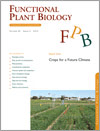
FUNCTIONAL PLANT BIOLOGY
metrics 2024
Connecting Genetics and Ecology for Plant Progress
Introduction
FUNCTIONAL PLANT BIOLOGY is a prestigious academic journal published by CSIRO PUBLISHING, specializing in the dynamic fields of Agronomy and Crop Science as well as Plant Science. With an ISSN of 1445-4408 and an E-ISSN of 1445-4416, this journal provides a platform for innovative research that addresses key challenges in plant functional biology, ranging from genetics and physiology to ecological interactions. As evidenced by its impact factor and competitive rankings, including Q1 in Agronomy and Crop Science and Q2 in Plant Science, FUNCTIONAL PLANT BIOLOGY holds a significant place in the scientific community, ranking in the top tiers of Scopus for both categories. The journal supports open access options, ensuring that critical research is widely disseminated and accessible to researchers, professionals, and students around the globe. With a publication history spanning from 2002 to 2024, the journal continues to foster the advancement of plant science, making significant contributions to sustainable agricultural practices and ecological research in Australia and beyond.
Metrics 2024
 0.65
0.65 2.60
2.60 2.90
2.90 136
136Metrics History
Rank 2024
Scopus
IF (Web Of Science)
JCI (Web Of Science)
Quartile History
Similar Journals
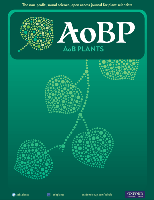
AoB Plants
Advancing plant science through open access.AoB Plants is a distinguished open-access journal published by Oxford University Press, dedicated to advancing the field of plant science. Since its inception in 2009, this journal has played a pivotal role in disseminating high-quality research that encompasses a wide range of topics including plant biology, ecology, and biotechnology. With an impressive impact factor and a ranking in the Q1 quartile for Plant Science, AoB Plants is recognized for its innovative contributions and scholarly rigor, ranking #129 out of 516 in the Scopus Agricultural and Biological Sciences category, placing it in the 75th percentile among its peers. By promoting open-access availability of research findings, the journal empowers researchers and practitioners alike, facilitating greater collaboration and knowledge sharing in the global scientific community. Situated in the heart of the United Kingdom, AoB Plants continues its commitment to providing a platform for pioneering research and developments in plant science, thus fostering a deeper understanding of the crucial roles that plants play in our ecosystems and economies.

CANADIAN JOURNAL OF PLANT SCIENCE
Unlocking the Secrets of Plant SystemsCanadian Journal of Plant Science (ISSN: 0008-4220, E-ISSN: 1918-1833) is a prestigious publication dedicated to advancing research in the fields of agronomy, horticulture, and plant science. Published by Canadian Science Publishing, this journal has been a cornerstone in the Canadian and international scientific community since its inception in 1973. With a solid presence in reputable databases, it ranks in the Q3 category for multiple disciplines as of 2023, reflecting its impact and relevance within the agricultural sciences. The journal serves as a vital resource for researchers, professionals, and students, encouraging the dissemination of innovative findings and fostering collaboration across disciplines. Although it is not an open-access journal, subscribers gain exclusive access to a wealth of knowledge, with articles aiming to enhance the understanding of plant systems and contribute to sustainable agricultural practices. The Canadian Journal of Plant Science remains committed to supporting the growth of plant-related research and its practical applications in today's changing environmental landscape.

Molecular Horticulture
Pioneering Discoveries in Sustainable Horticultural PracticesMolecular Horticulture is a prestigious journal published by SpringerNature, dedicated to advancing knowledge in the fields of Agronomy, Crop Science, Horticulture, and Molecular Biology. Based in the United Kingdom, this journal, with ISSN 2730-9401, is recognized for its high-quality, peer-reviewed research and has rapidly established itself within the academic community, achieving a remarkable Q1 ranking across its relevant categories as of 2023. With a strong focus on innovative research that explores the intersection of molecular biology and horticultural science, Molecular Horticulture provides valuable insights that are essential for researchers and professionals aiming to enhance crop production and sustainability practices. As part of the Scopus database, the journal ranks impressively within its fields, holding notable positions such as Rank #7 in Horticulture and Rank #42 in Agronomy and Crop Science. While currently published through traditional access models, the journal remains accessible to a wide audience of scientists, educators, and students eager to stay informed on the latest discoveries and trends in plant science.

BIOLOGIA PLANTARUM
Innovative Research, Rooted in TraditionBIOLOGIA PLANTARUM, esteemed within the realms of horticulture and plant science, is a leading academic journal published by the Academy of Sciences of the Czech Republic, Institute of Experimental Botany. Established in 1959, this journal showcases innovative research and advancements in plant biology, focusing on a spectrum of topics including plant physiology, genetics, and biotechnology. With an impressive Scopus ranking in Horticulture (Rank #41/115) and Plant Science (Rank #221/516), it holds a significant place in the academic community, reflected in its Q2 and Q3 status within its respective categories. Although it is not open access, authors are encouraged to contribute to the growing body of knowledge that supports sustainable practices in agriculture and horticulture. Published in the Netherlands, BIOLOGIA PLANTARUM continues to foster collaboration and dialogue among researchers, professionals, and students dedicated to understanding and advancing plant sciences.

Nature Plants
Advancing Plant Science for a Sustainable FutureNature Plants is a premier journal dedicated to the dynamic and interdisciplinary field of plant science, published by NATURE PORTFOLIO in the United Kingdom. With an impressive impact factor placing it in the top tier of scholarly journals—ranking Q1 in Plant Science for 2023—this journal sets a high standard for research dissemination. Nature Plants has maintained a remarkable Scopus Rank of 5 out of 516 in the Agricultural and Biological Sciences category, reflecting its pivotal role in advancing knowledge in the field. The journal aims to provide a platform for groundbreaking research that addresses key challenges in plant biology, ecology, and agriculture, thereby fostering a deeper understanding of plant science's contribution to global sustainability. Although primarily non-open access, it offers exclusive insights and robust discussions, making it an indispensable resource for researchers, professionals, and students eager to explore the latest advancements and innovations in plant science.
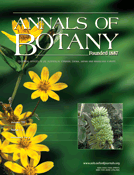
ANNALS OF BOTANY
Cultivating Innovations in Plant ResearchANNALS OF BOTANY, published by Oxford University Press, stands as a leading journal in the field of Plant Science, with a distinguished history that dates back to 1887. This esteemed journal, recognized for its contribution to the advancement of botanical research, holds a prestigious Q1 quartile ranking in its category as of 2023. With a commitment to sharing high-quality, peer-reviewed research, ANNALS OF BOTANY provides a vital platform for researchers, professionals, and students to disseminate novel findings and engage in scholarly discourse. Although it does not currently offer open access options, the journal remains accessible to a wide academic audience, further cementing its role in facilitating the exchange of knowledge within the global botanical community. For those interested in the dynamic and evolving world of plant sciences, ANNALS OF BOTANY is an indispensable resource.
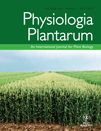
PHYSIOLOGIA PLANTARUM
Fostering Groundbreaking Discoveries in Plant PhysiologyPHYSIOLOGIA PLANTARUM, published by WILEY, is a prestigious journal in the fields of plant science, physiology, and genetics, known for its impactful contributions since its inception in 1948. With an impressive impact factor and a consistent ranking in the Q1 and Q2 quartiles, it stands out in critical disciplines such as cell biology and biochemistry, ranking #24 in Plant Science with a remarkable 95th percentile standing. This journal primarily serves researchers and professionals committed to advancing the understanding of plant functions, responses, and their molecular mechanisms. Its broad scope allows for a diverse array of studies, ensuring that groundbreaking research is accessible to the global scientific community. Although it does not offer Open Access, PHYSIOLOGIA PLANTARUM remains a vital resource for scholars looking to stay at the forefront of plant biology and related fields.

PHYSIOLOGY AND MOLECULAR BIOLOGY OF PLANTS
Innovating Agriculture through Plant Molecular InsightsPHYSIOLOGY AND MOLECULAR BIOLOGY OF PLANTS, published by SPRINGER, is a vital journal focused on the advancing field of plant science. Featuring research that spans physiology, molecular biology, and their applications in agriculture, this journal is pivotal for academics, professionals, and students keen on understanding plant processes and enhancing crop production. With an ISSN of 0971-5894 and an E-ISSN of 0974-0430, this journal is recognized for its scholarly significance, ranking in the Q3 category in Molecular Biology, Q2 in Physiology, and Q1 in Plant Science as of 2023. The journal maintains a strong position in the Scopus rankings, with notable percentile rankings including 87th in Plant Science. Established in 2000, this publication aims to foster the dissemination of cutting-edge research by providing a platform for open discussion and knowledge sharing about plant physiology and molecular mechanisms. While it does not currently offer open access options, its comprehensive studies and reviews serve as an essential resource for enhancing our understanding of plant biology.
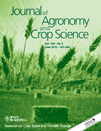
JOURNAL OF AGRONOMY AND CROP SCIENCE
Advancing sustainable solutions in agronomy and crop science.JOURNAL OF AGRONOMY AND CROP SCIENCE, published by Wiley, stands as a leading platform in the fields of agronomy and crop science, reflecting its commitment to advancing knowledge through rigorous research. With an impressive H-index that signifies its scholarly impact, this journal has consistently maintained a prestigious Q1 ranking in both Agronomy and Crop Science, and Plant Science as of 2023. With a robust ranking of #46/516 in Plant Science and #39/406 in Agronomy and Crop Science according to Scopus, it sits comfortably within the top percentiles, emphasizing its relevance and authority in the academic community. The journal has been a vital resource since its inception in 1973, with ongoing coverage until 2024, making it an essential reference for researchers, professionals, and students looking to navigate the latest developments and insights in crop management and agricultural practices. Although it does not currently offer open access options, JOURNAL OF AGRONOMY AND CROP SCIENCE remains committed to providing high-quality, peer-reviewed content that fosters innovation and encourages sustainable solutions within the agronomy sector.
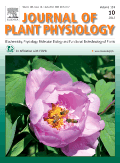
JOURNAL OF PLANT PHYSIOLOGY
Innovating Insights for Sustainable AgricultureJOURNAL OF PLANT PHYSIOLOGY, published by ELSEVIER GMBH, stands as a leading international journal dedicated to the field of plant physiology, agronomy, and crop science. With an impressive impact factor and recognition within the Q1 and Q2 quartiles across various categories, this journal consistently ranks among the top in its field—positioned at #65/516 in Plant Science and #52/406 in Agronomy and Crop Science as of 2023. Located in Munich, Germany, it serves as a vital platform for researchers, practitioners, and students to share groundbreaking insights and advancements. Although it does not currently offer open access, the journal provides an essential repository of knowledge, publishing significant original research, reviews, and discussions on plant function, regulation, and development, thereby shaping the future of agricultural practices and contributing to our understanding of biophysical processes. Researchers looking to publish in a reputable venue or to access cutting-edge studies will find JOURNAL OF PLANT PHYSIOLOGY an invaluable resource.